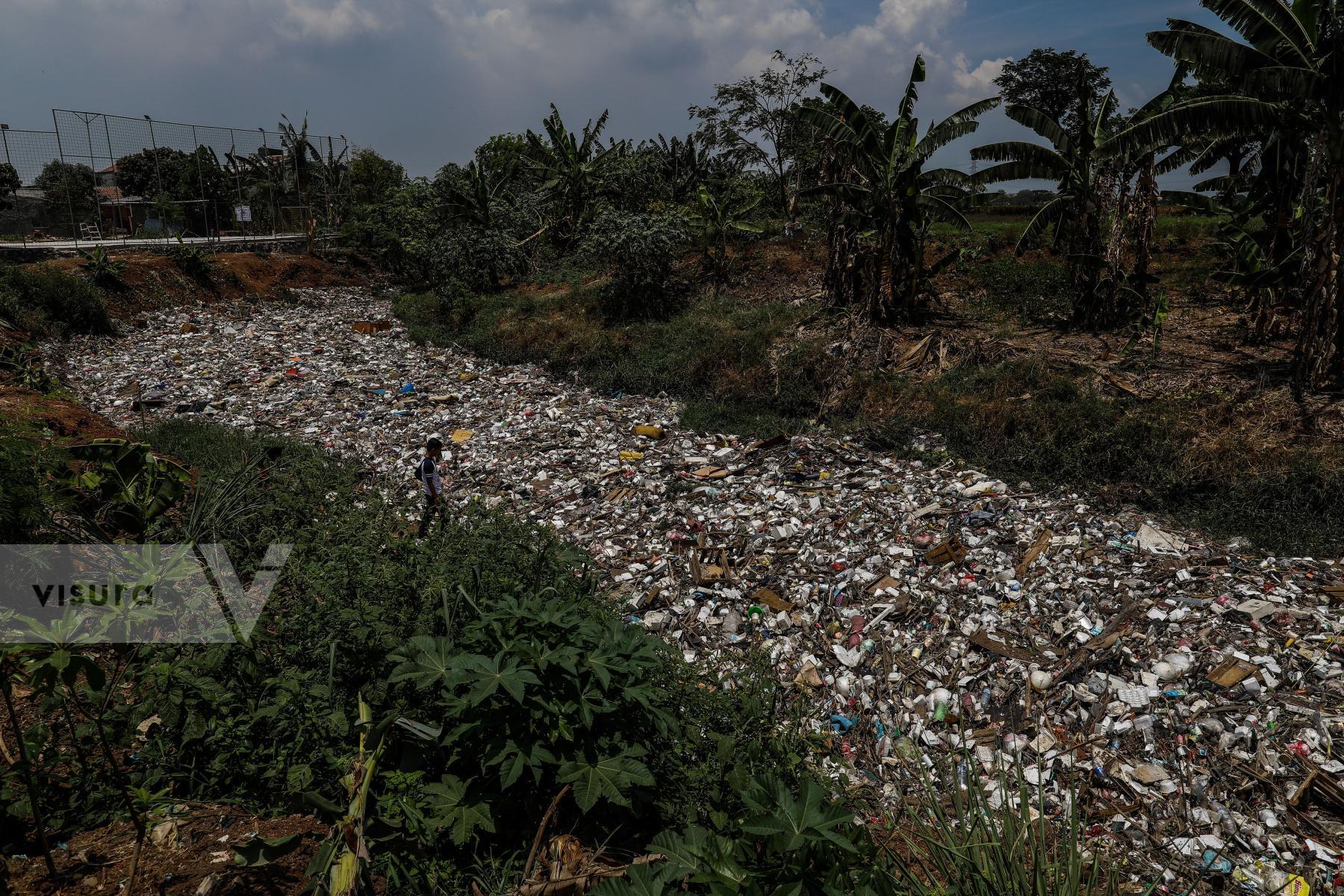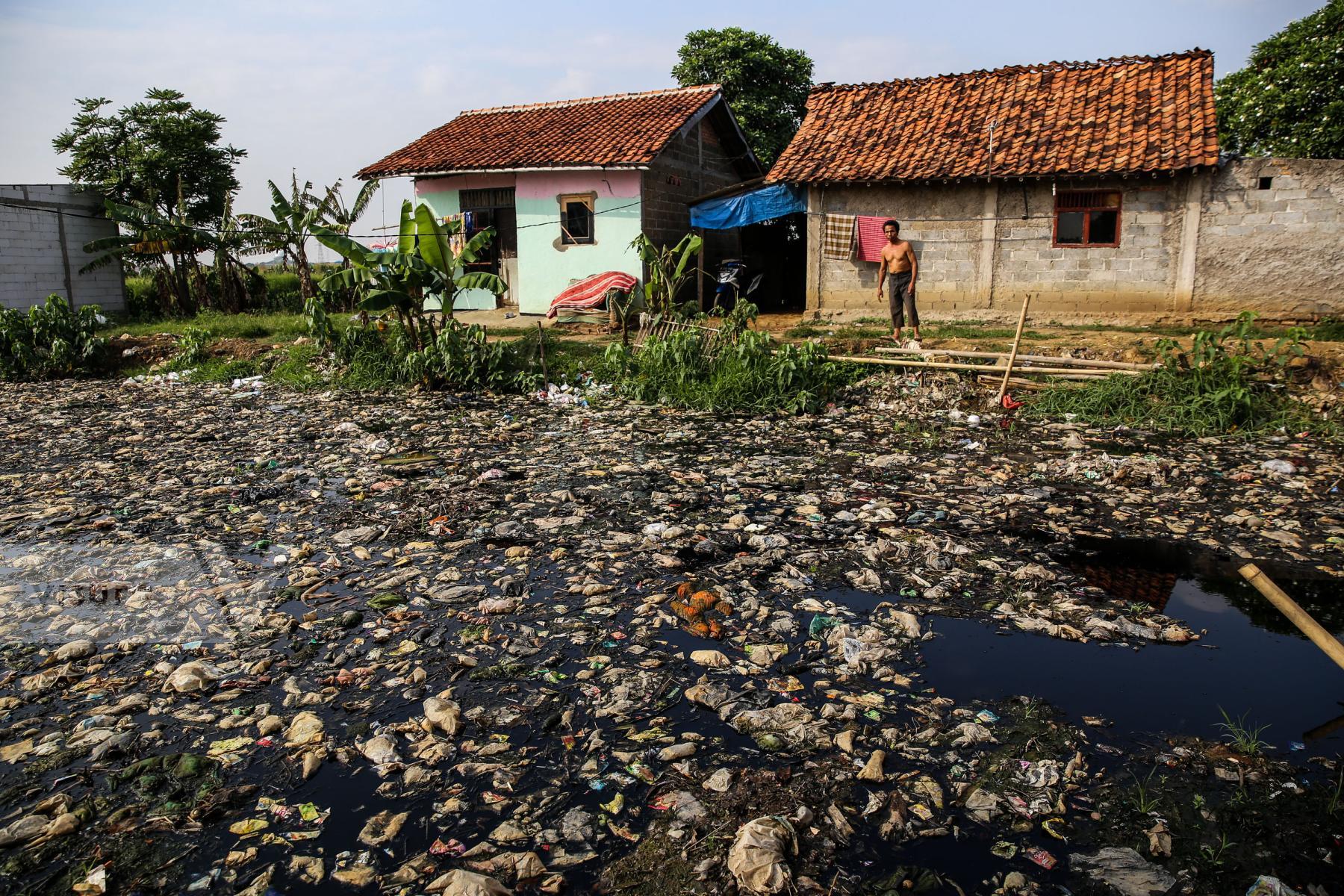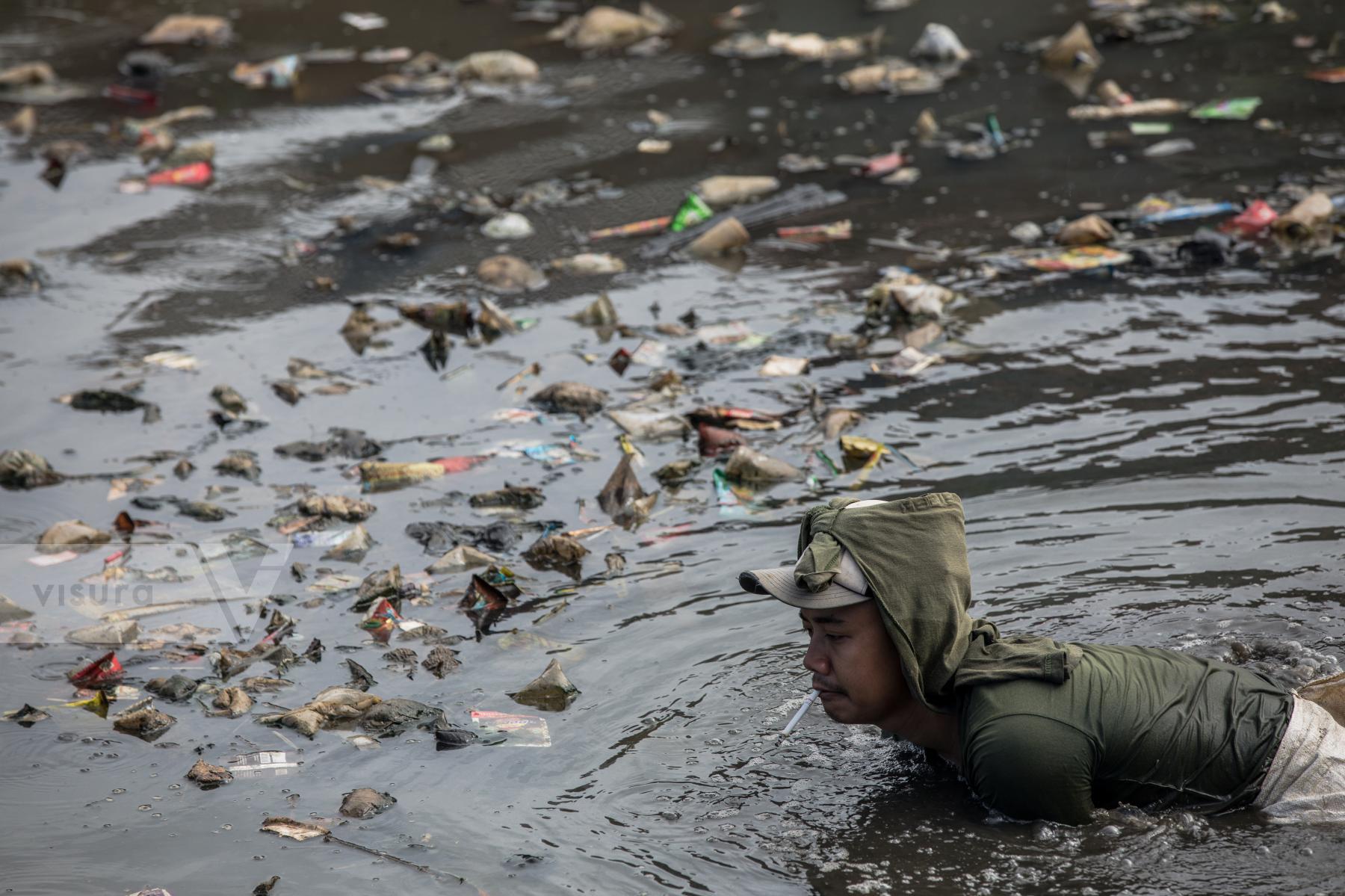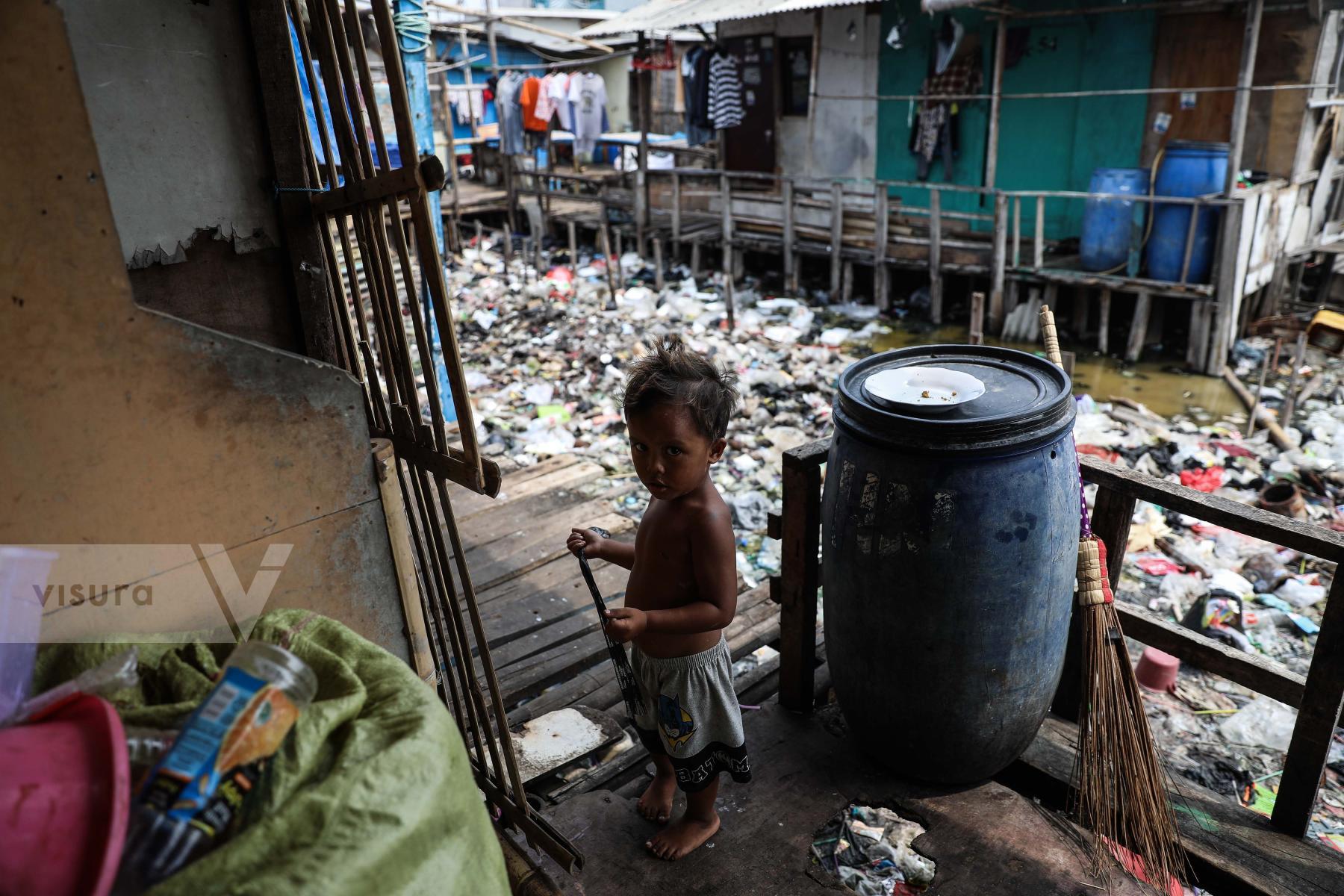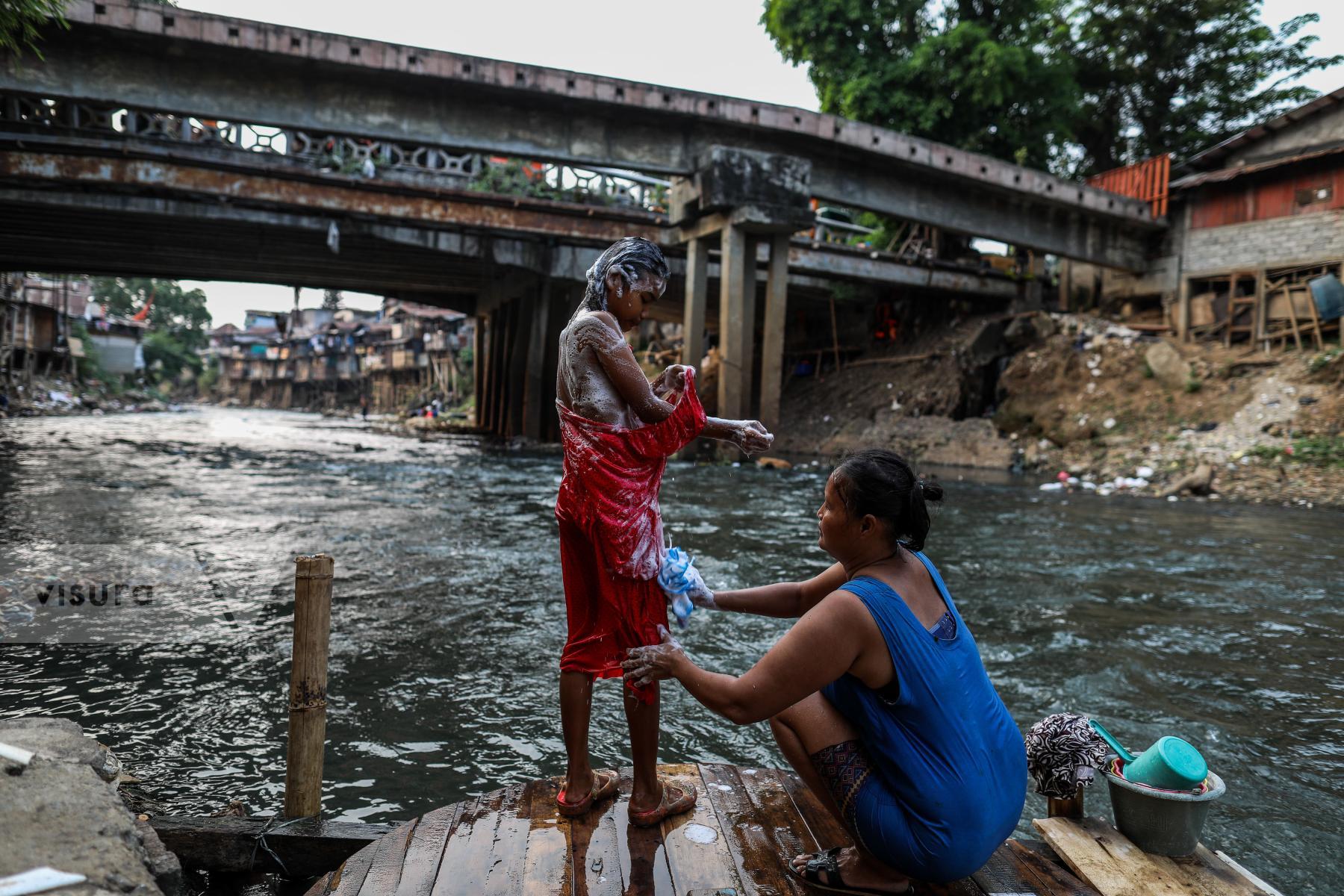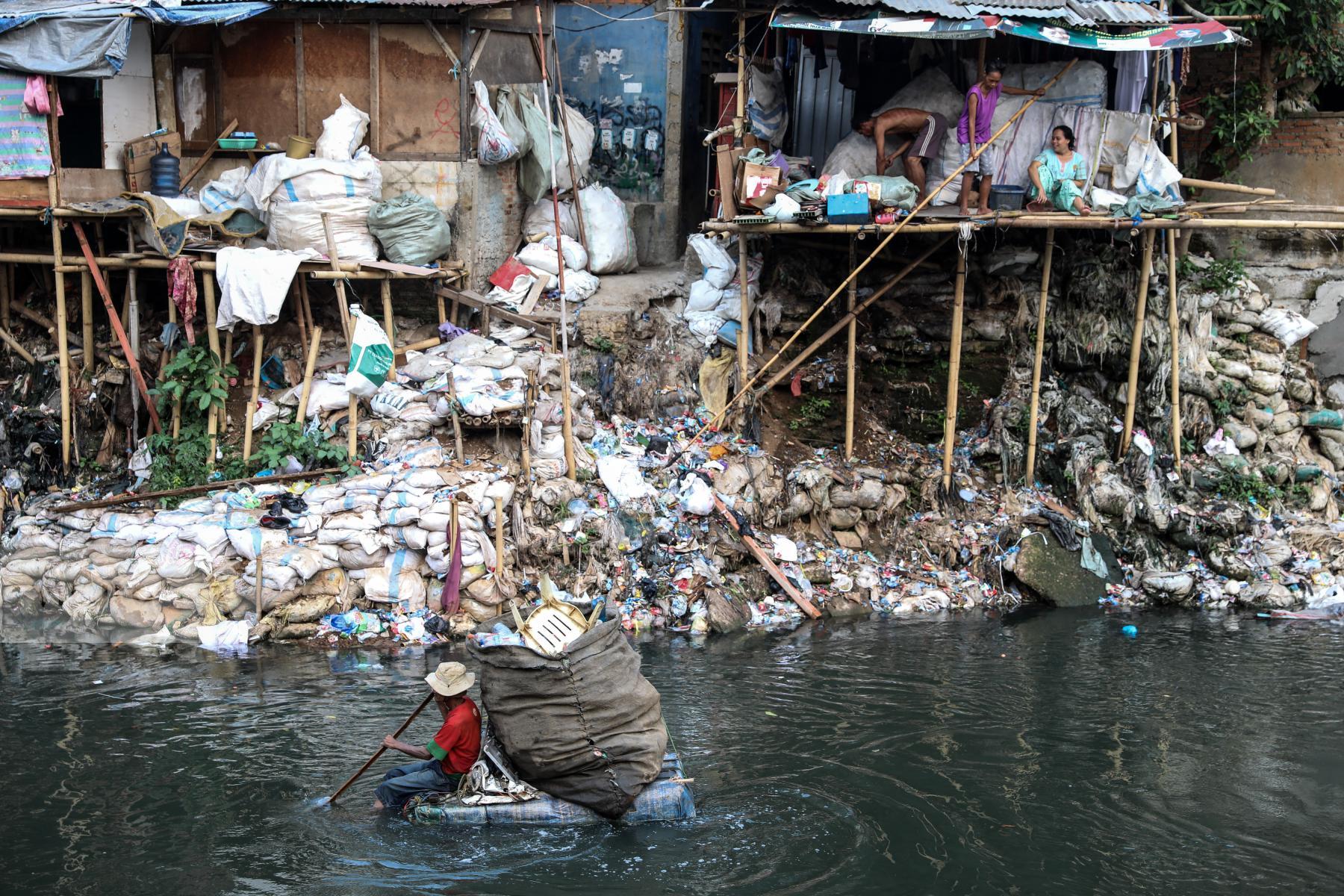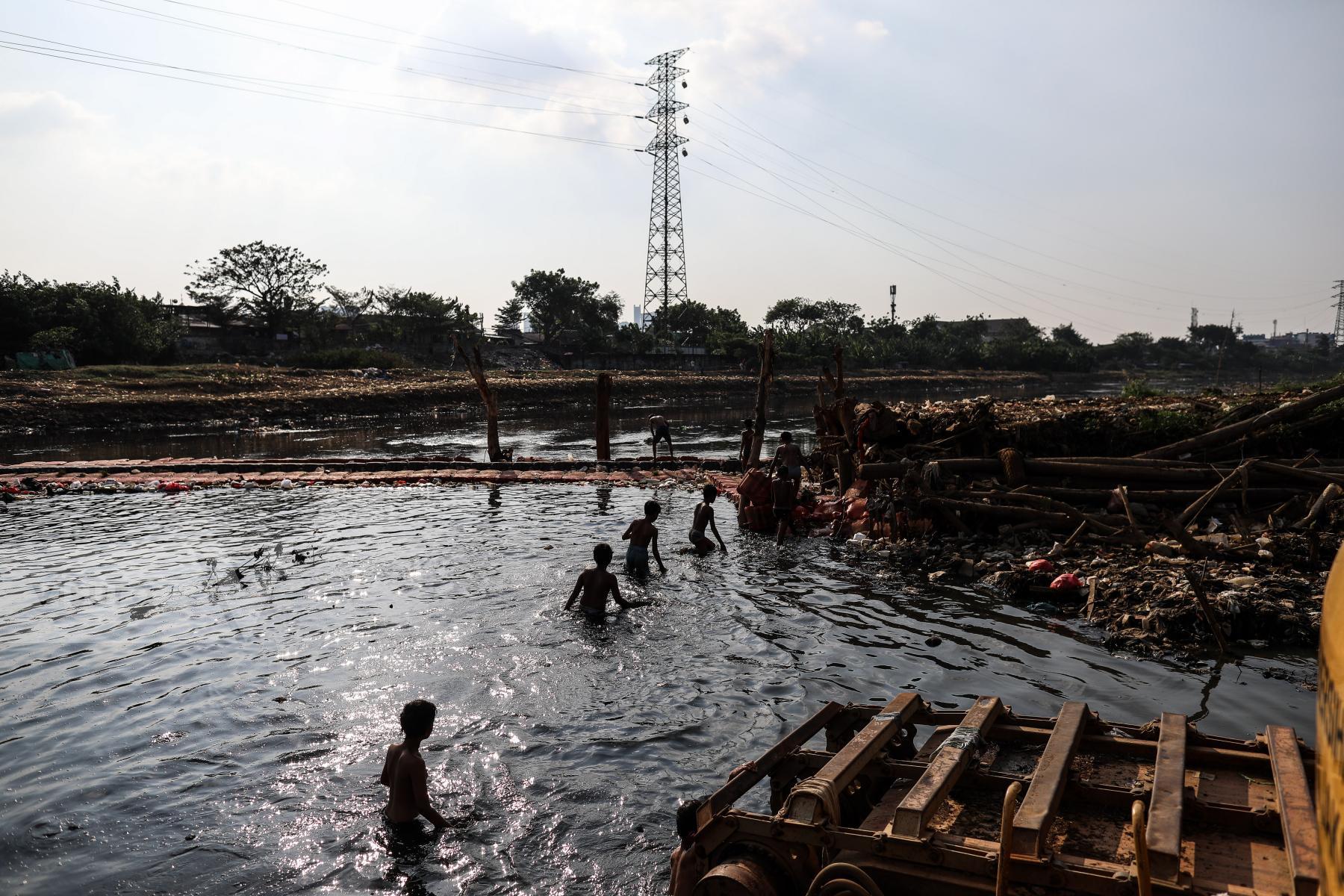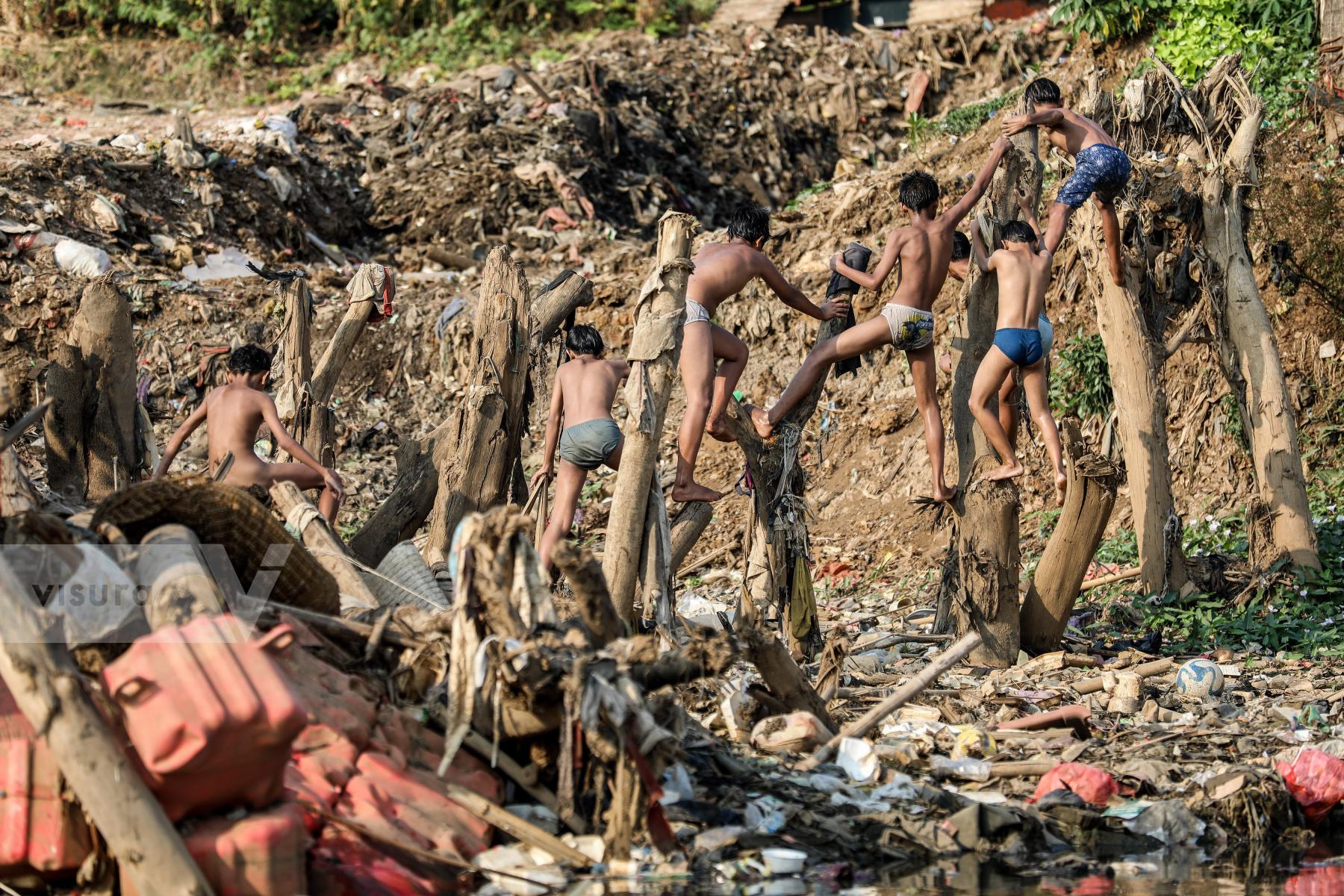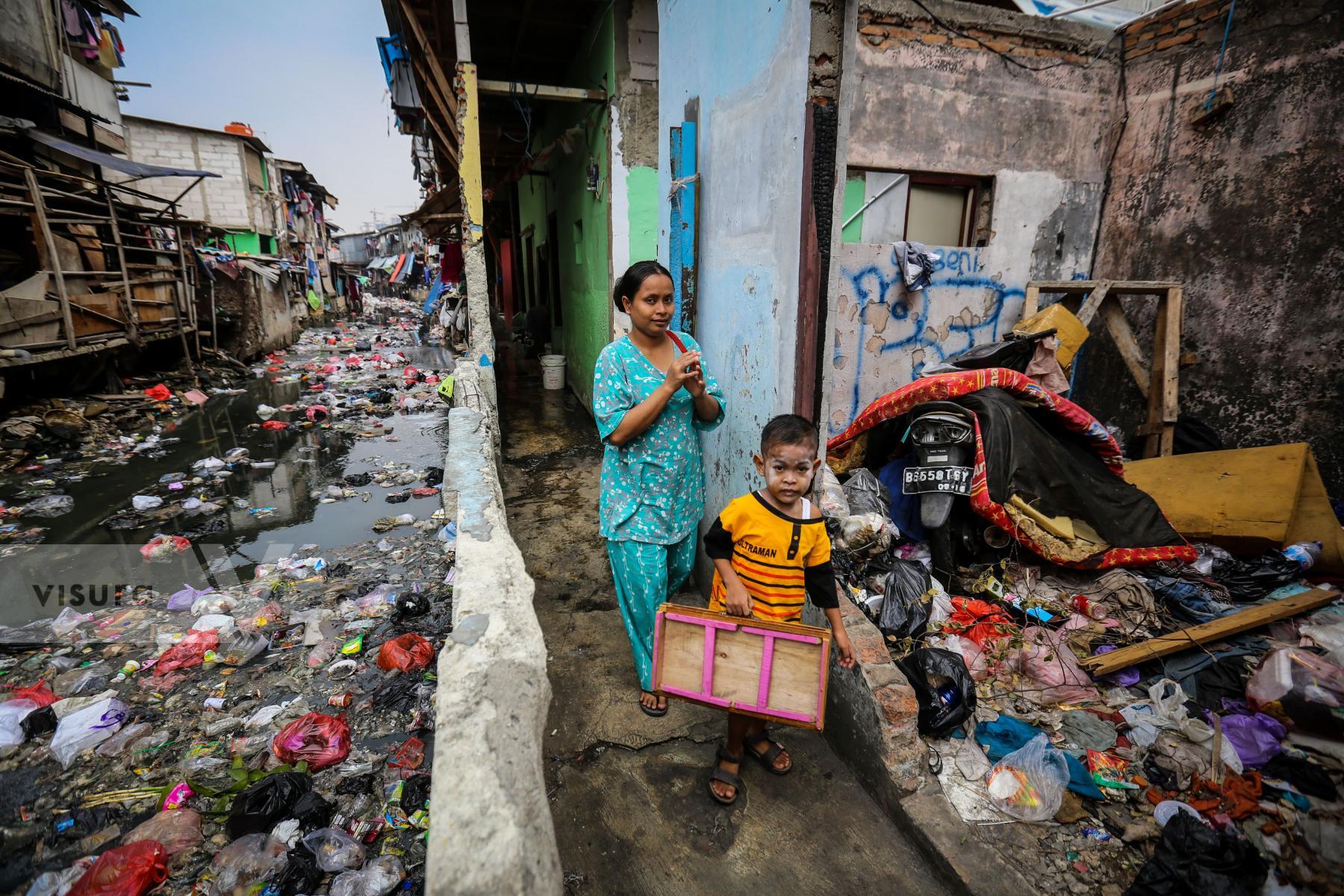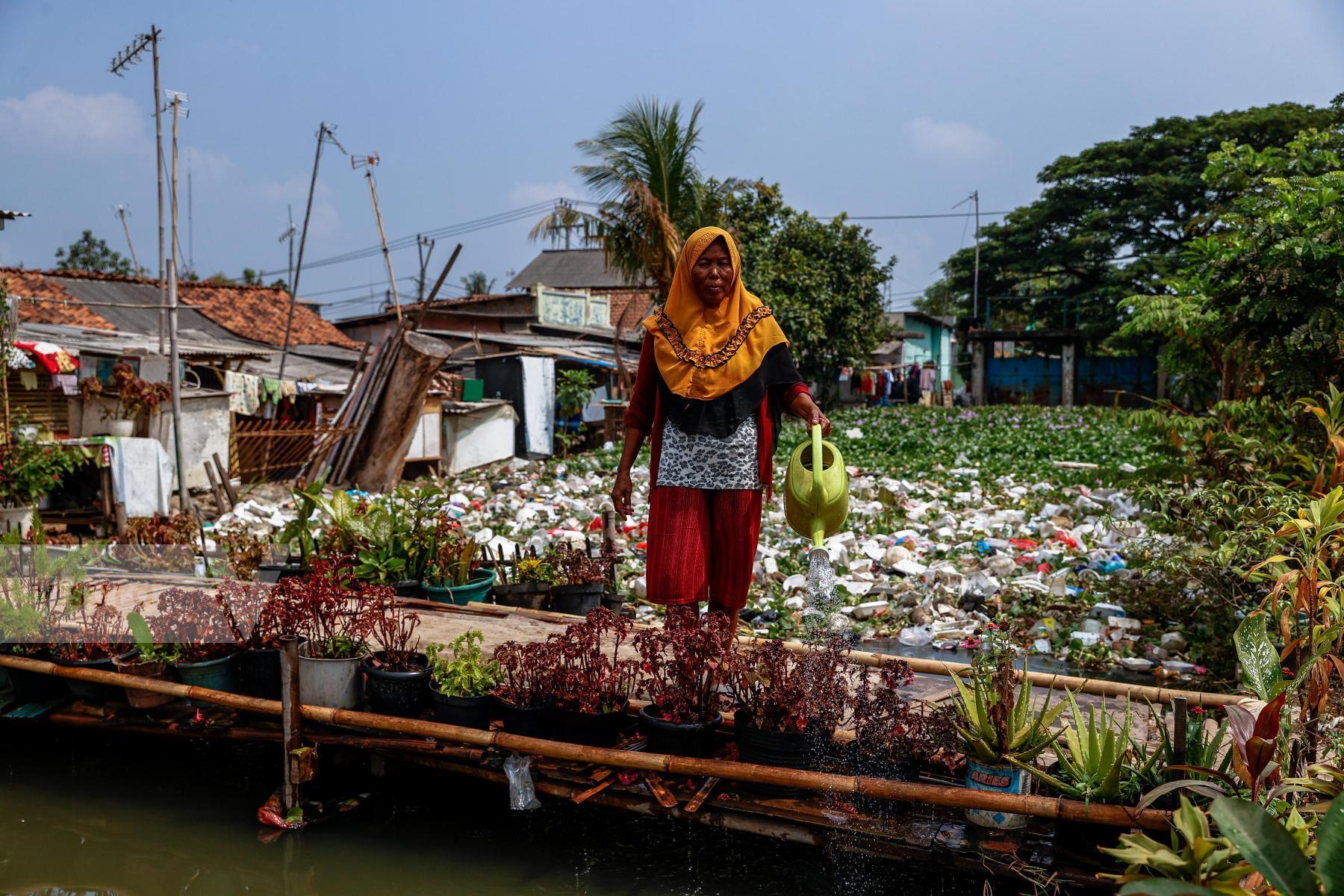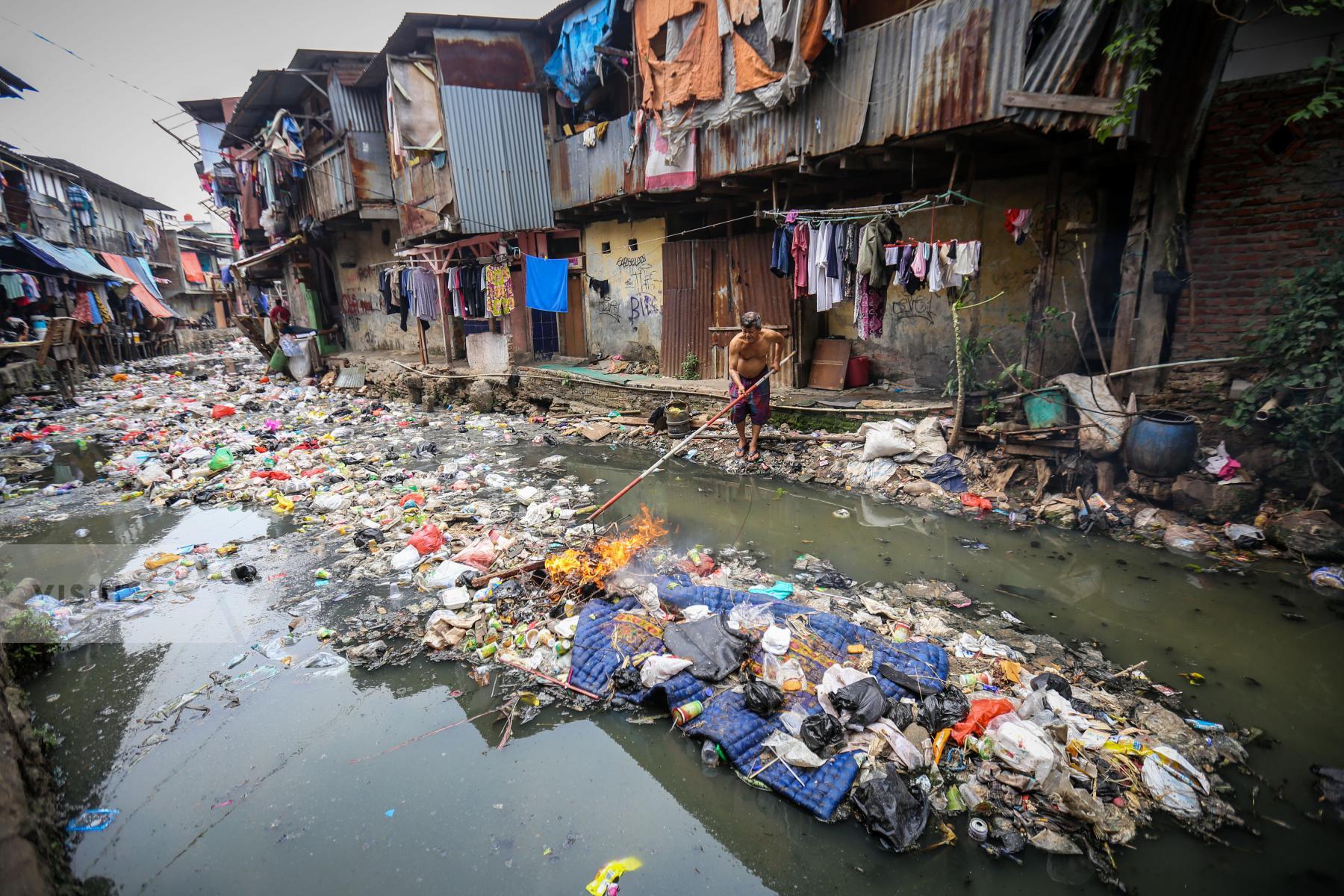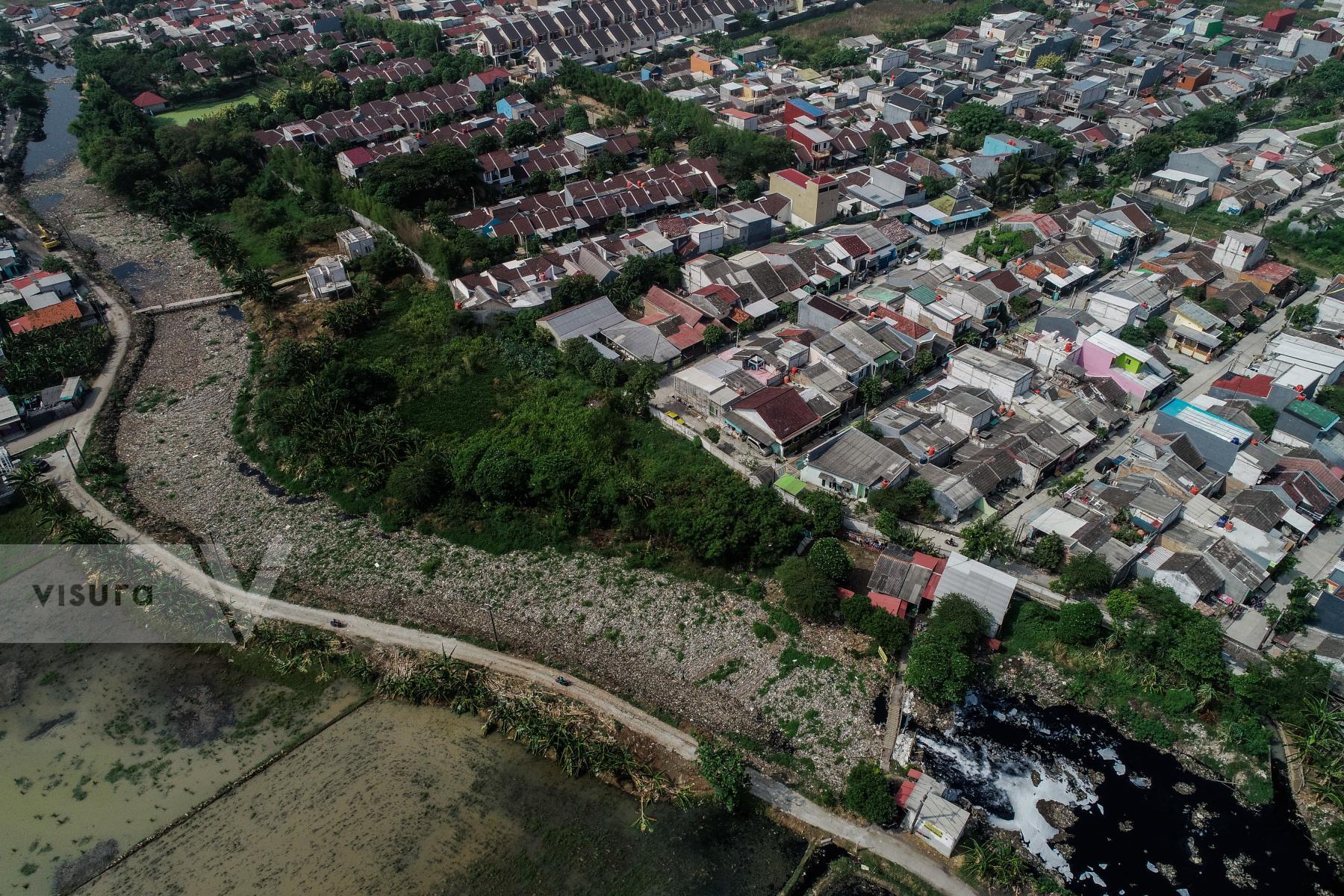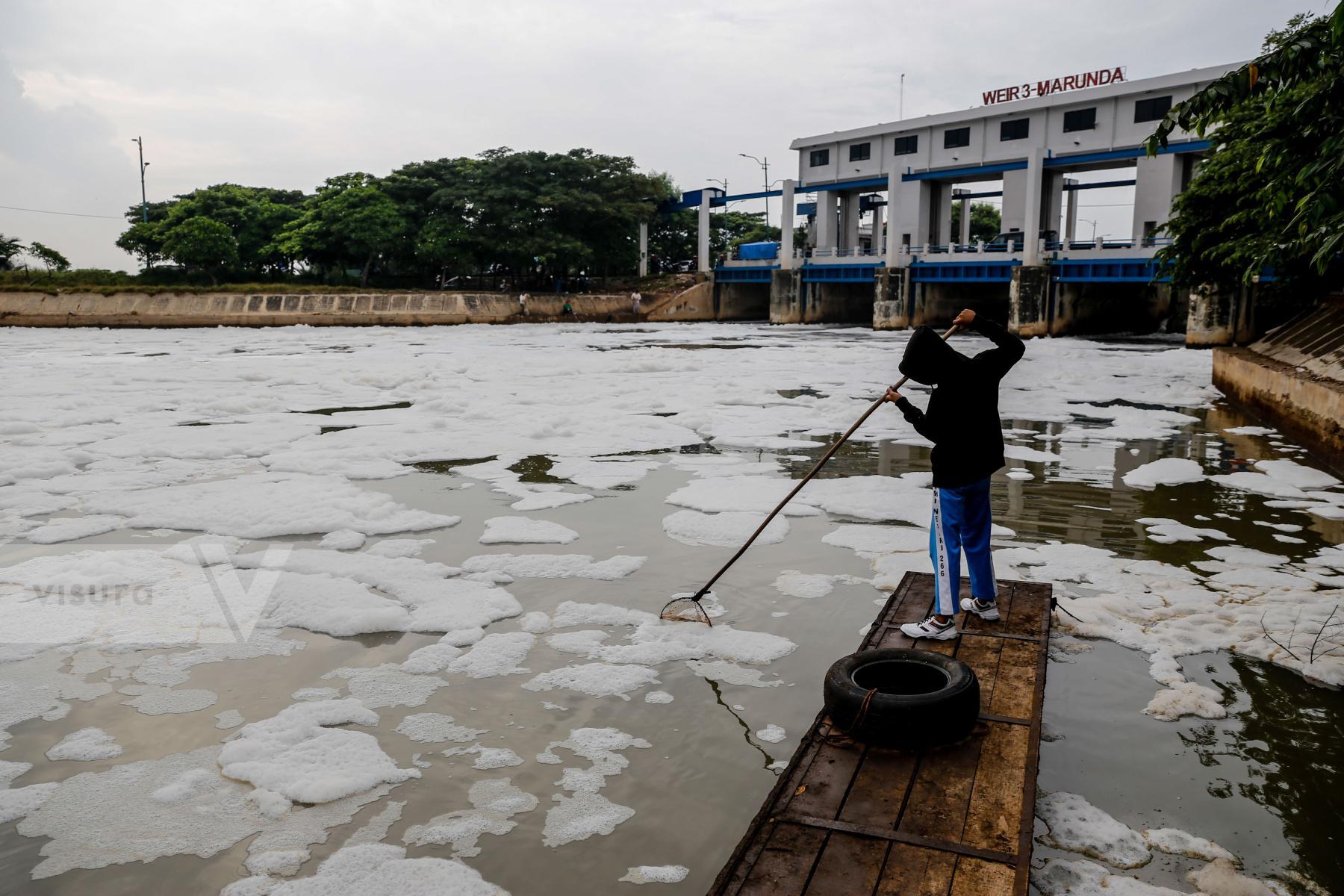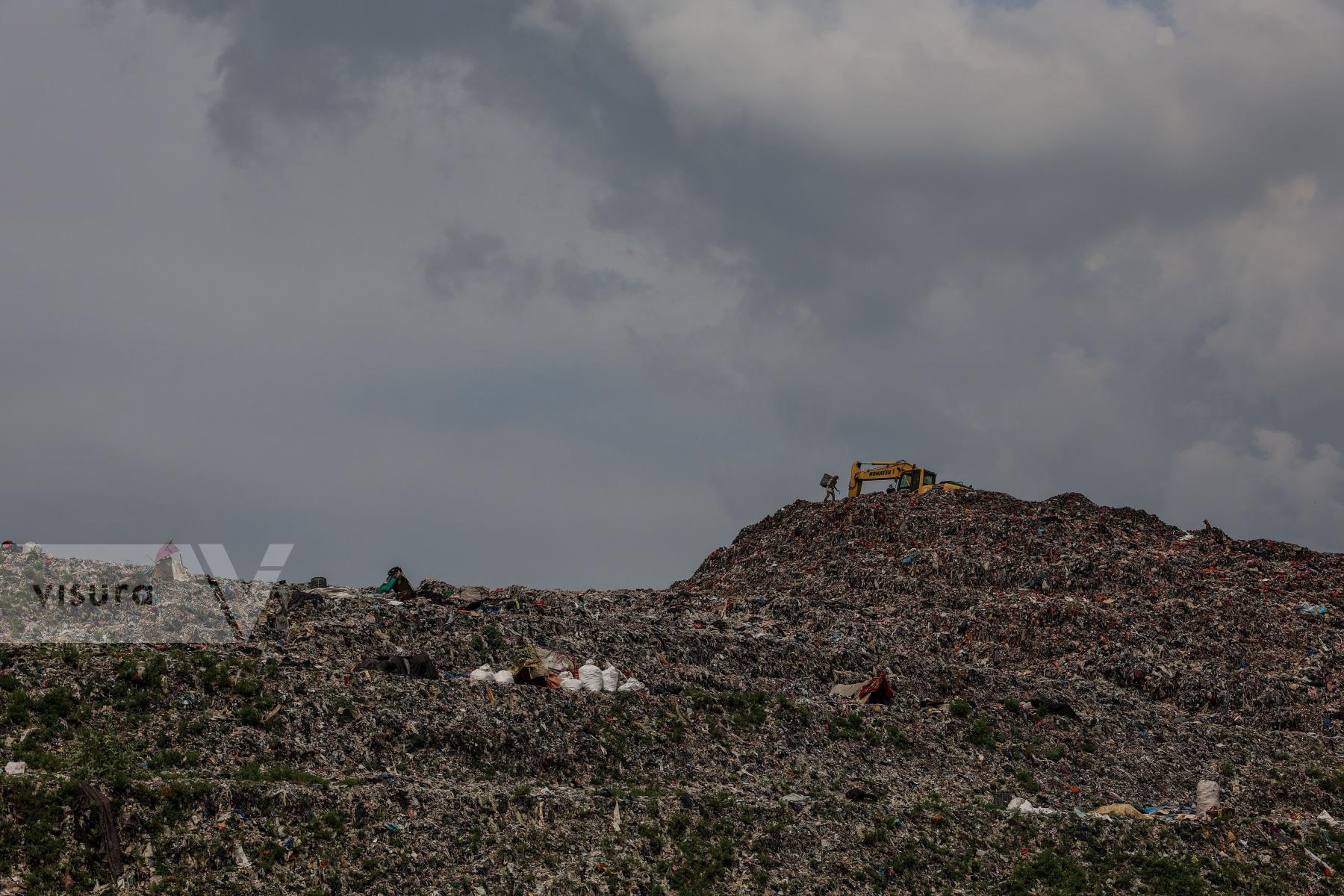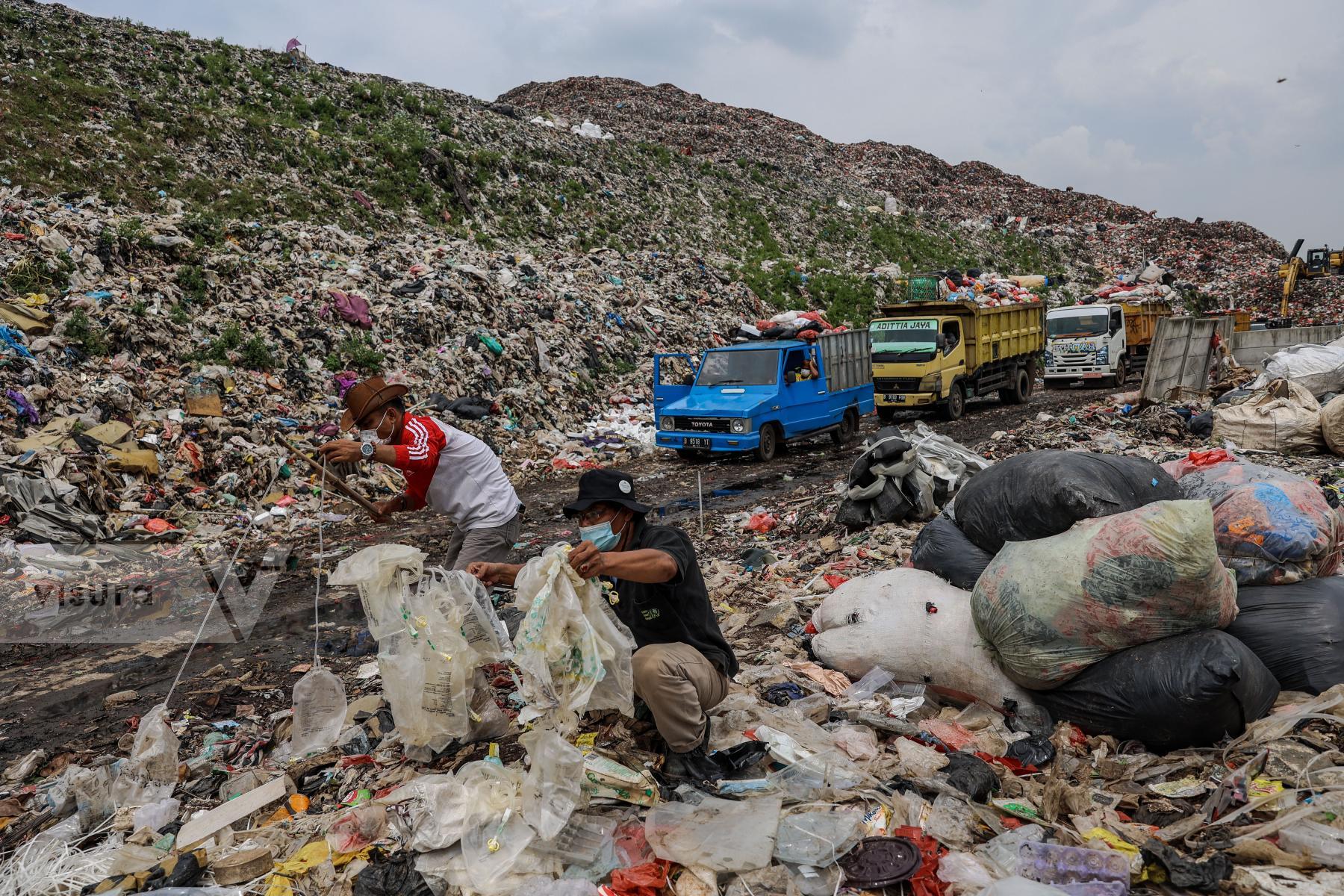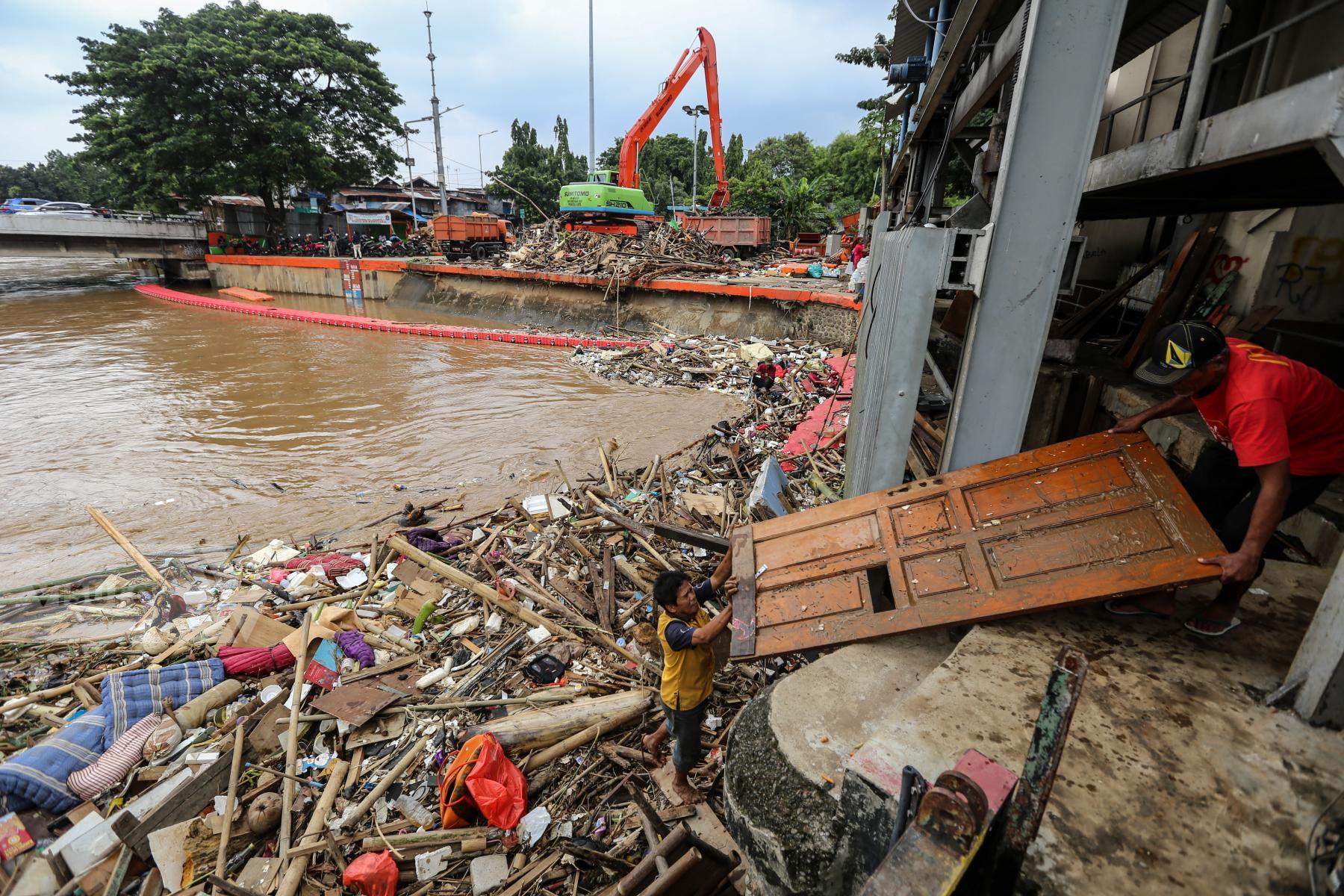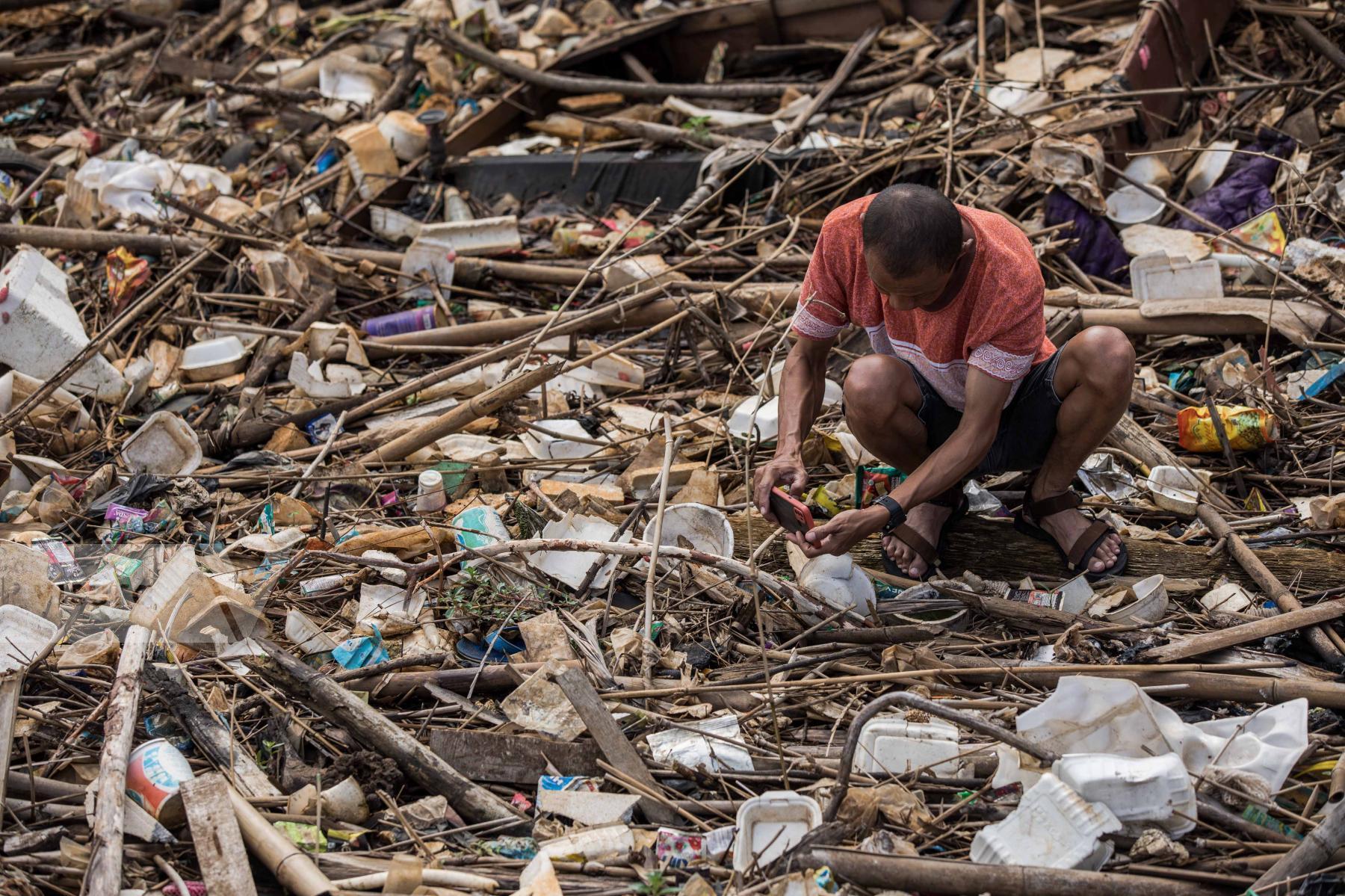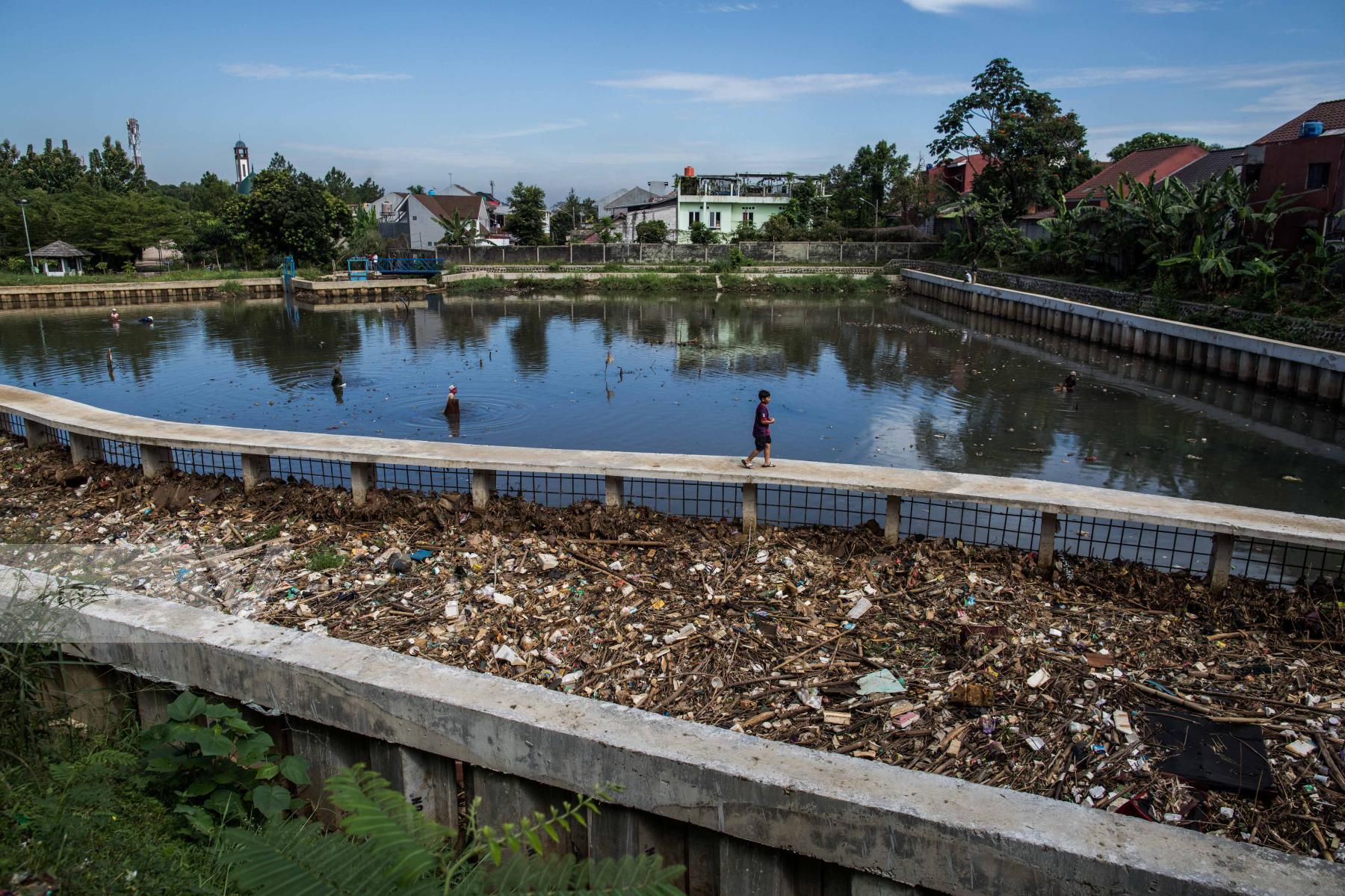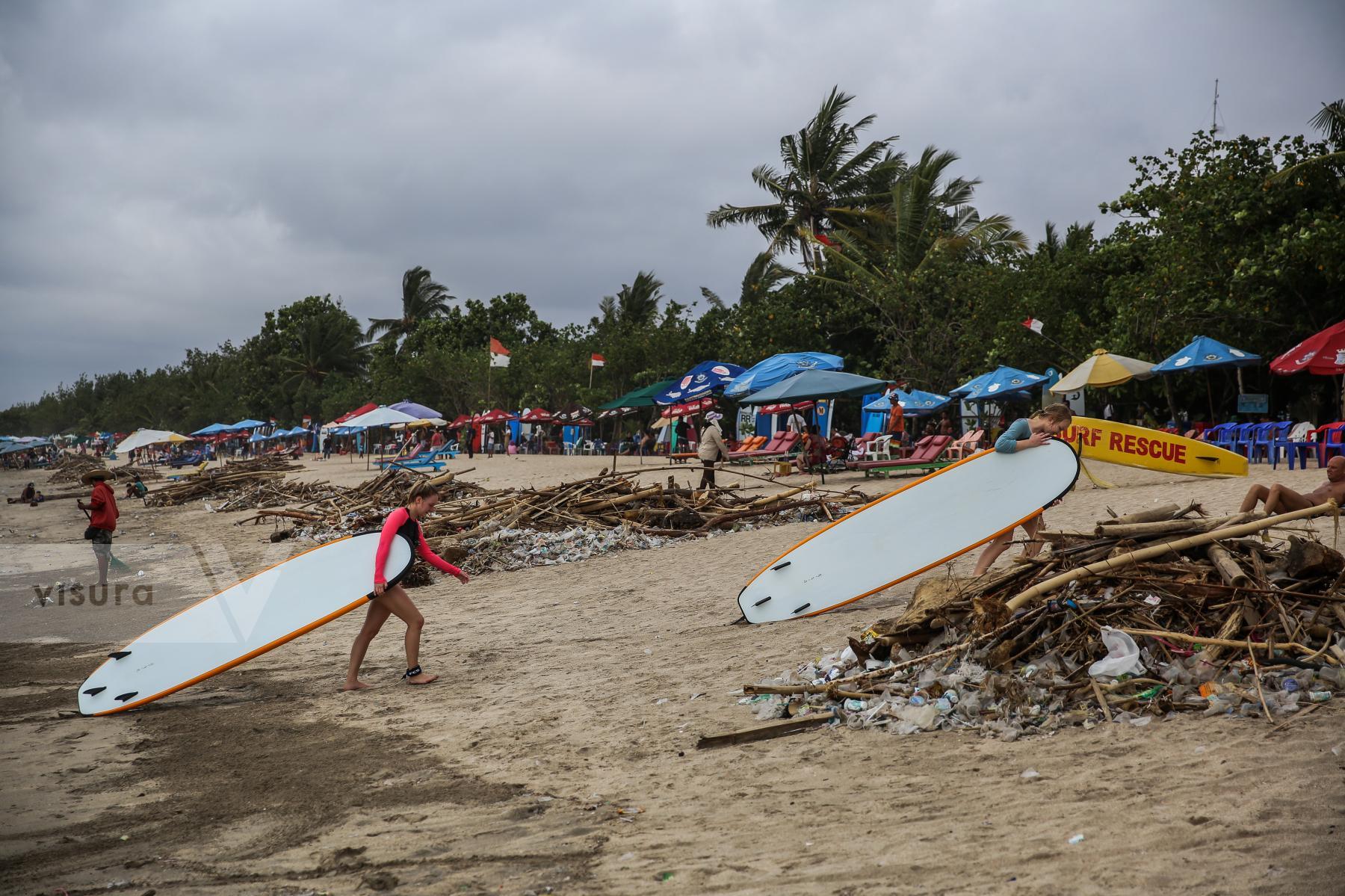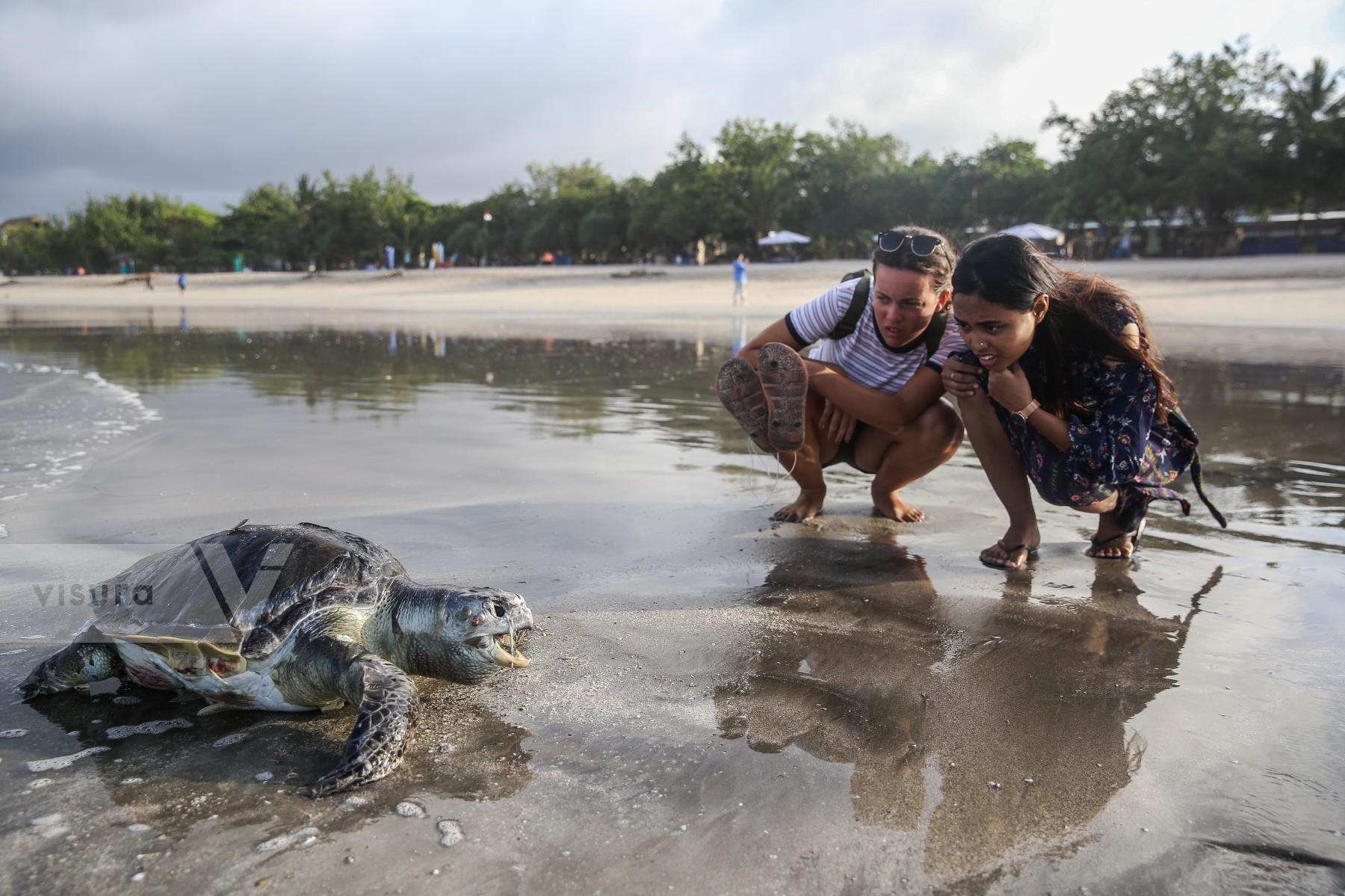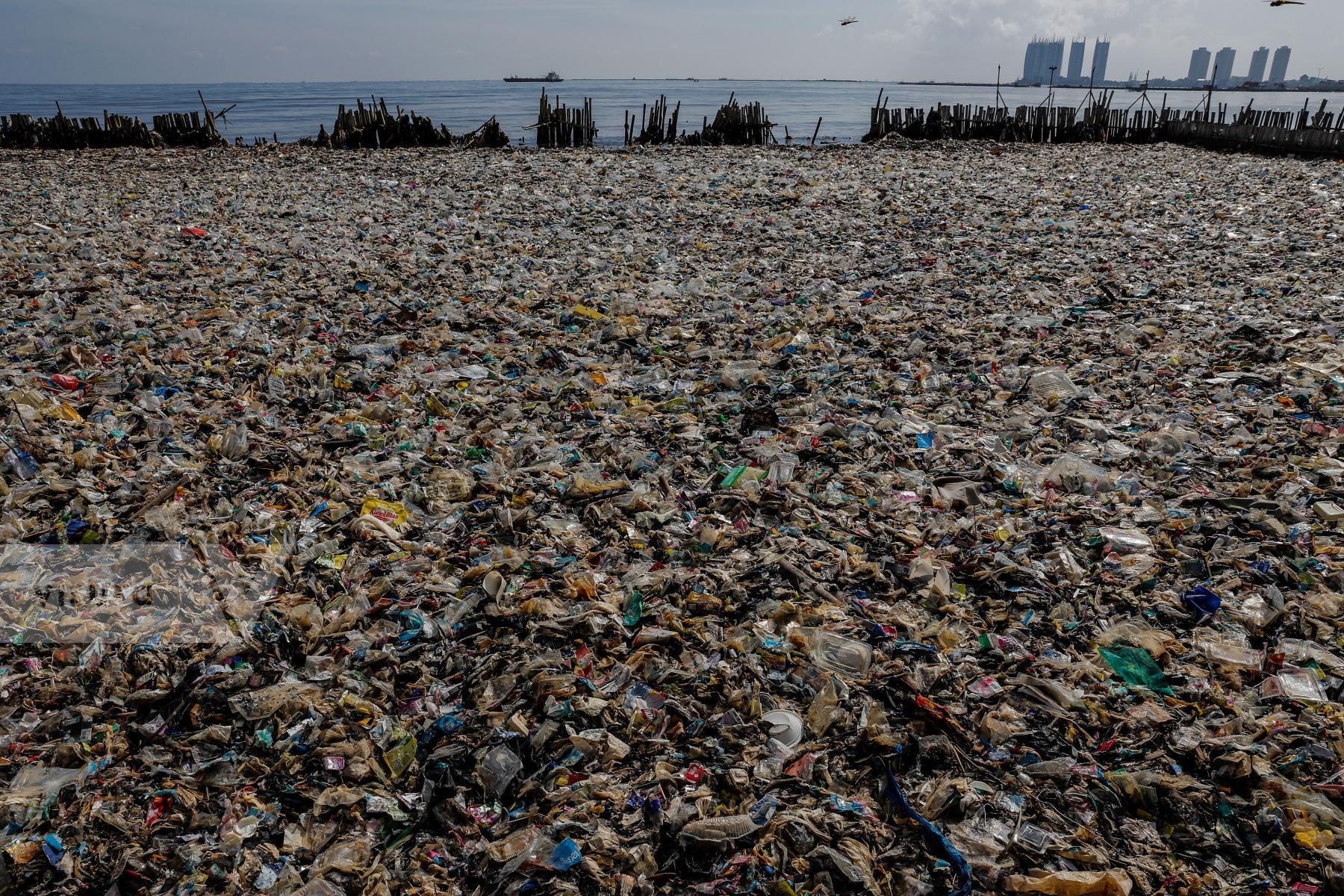Project Text
Drowning In Plastic
5 September 2017 - 17 December 2022
Indonesia has a major plastic waste problem on its hands. The crisis of plastic waste isn’t just limited to the ocean, it has also affected Indonesian rivers. Data from Nature Communications revealed that four of Indonesia’s rivers: Brantas, Ciliwung, Citarum, and Progo, rank among the 20 most polluted rivers in the world.
At the moment, the country is second only to China for contributing to plastic pollution of the world's oceans. With an average life of 450 years, plastic packaging continues to accumulate, choking rivers, killing birds that swallow the indigestible materials, and covering beaches and in a dense carpet of rubbish.
Most plastic is non-recyclable and not biodegradable, meaning that it usually ends up in landfills and Indonesia has plenty of them. The largest landfill in Indonesia is the Bantar Gebang landfill in Jakarta. Over 900 trucks operate there and deliver more than 5,000 tonnes of solid waste every day.
These landfills can be hazardous to the environment as plastic waste also releases harmful chemicals into the atmosphere. Initially, the landfills pollute the groundwater as chemicals seep into the ground and eventually make their way to rivers and lakes. Landfills also emit methane gas which is known to contribute to air pollution.
In Indonesia, plastic is everywhere. Aside from plastic bags, one can find everyday objects such as tables and chairs made from plastic too. This is probably due to the fact that plastic products are cheap to produce in the country. The ubiquity of plastic bags combined with the lack of awareness of how damaging plastic waste can be to the environment is probably among the reasons why Indonesia is facing this predicament.
As others countries are becoming more conscious of their contributions to climate change, Indonesia needs to follow suit. Last year, the government set a target to reduce plastic waste by up to 70 percent by 2025. To achieve this target, the government said that it will contribute US$1 billion annually to the effort.
The Indonesian government’s actions in combatting plastic use and production have been relatively toothless compared to efforts elsewhere. If the country is serious about protecting the environment then it needs to take more drastic action. The government is aware of how much Indonesia contributes globally to plastic waste pollution in the ocean and it is also aware that measures ought to be taken soon. However, the political will needed to address the problem is still lacking.
Globally, more than 60 countries have taken steps to ban or reduce the use of plastic, like Australia, India, Mexico, Colombia, Peru, Chile, and South Korea.
Note: We can all have that impact by living more sustainable lives. By using reusable bags, bottles, and refusing single-use plastic, you are already setting a positive example to your children and friends and reducing your impact on the planet.
If we play our part, nature can heal. We are never too small to make a difference.

